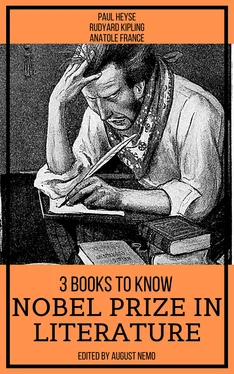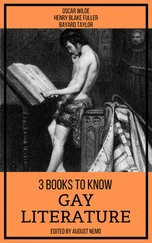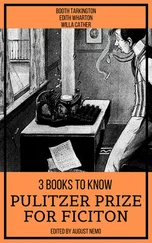"And you, too, seem to have altered little; less, perhaps, than would have been advisable," said Edwin, laughing.
Mohr's only answer was a shrug of the shoulders. He threw down his satchel and went to the turning-lathe, beside which Balder was leaning.
"Still as conscientious as ever; trying to kill himself," he muttered, taking up some of the little articles which were waiting for the last touches. "But I can't blame you, Balder. You at least accomplish something every day, and only hurt your chest by bending and stooping. Other people would be fairly beside themselves with impatience, if they had to sit doubled up all day long turning their stock in trade. Besides, it seems to me you have made considerable progress. You are an enviable fellow, Balder."
The youth looked at him with a smile.
"Would that you could only convince Edwin of it!" he said; "he is always trying to persuade me to give up my trade. He won't believe that to sit perfectly idle, and see everybody else work would kill me much sooner."
"Idle! As if you ever could be idle!" cried Edwin indignantly. "As if it were not the most insane obstinacy to refuse to accept from his own and only brother, that which even he has means sufficient to procure—a pitiful mouthful of bread! But we will let it pass, though it is the only real annoyance of my life, and this hard heart might so easily spare it me,—Basta! I will not be vexed to-day. So begin your confession, my friend! To-day, at least, you are secure from any moralizing on my part."
Mohr having seated himself in a chair beside the open window, had begun to twist a cigarette, the materials for which he took from a tin box.
"There is absolutely nothing new to tell," he replied with great apparent indifference. "The old apothegm that no one can add one inch to his stature, has been once more ratified, that's all. I left Berlin, as you will remember, because I thought that the noise and bustle alone prevented me from becoming a great man. 'Talent developes in a quiet life.' Well, I've lived quietly enough with my old mother, but nothing has developed. So, thinks I to myself, as no talent developes let us try character—'character is formed in the current of the world'—and so back I have come again, and have already selected a character to which I intend to adapt myself. A match, Edwin!"
He puffed huge clouds of very strong Turkish tobacco out of the window.
"So nothing came of the editing of the newspaper, from which you expected so much?"
"It was a miserable sheet, children, a commonplace, provincial, gossiping little paper, in which appeared, twice a week, bad novels, stolen from various quarters, or 'original contributions' by the bürgermeister's daughter or chief customhouse officer's son, and lastly charades and rebuses. However, all the citizens swore by it, and not a syllable was lost. The right kind of fellow might have made something of it, or at least in time have smuggled in something better, and, in so doing, might himself have found room to grow. But there is the point. After first turning up my nose at this narrowmindedness, I at last discovered that I really could not do much better myself. You know I always believed that if I could once form a correct appreciation of my own powers, a thing not to be accomplished in the intellectual ant-hill of Berlin, the world would be astonished. Well, I have really arrived at this just appreciation, and for a long time have been unable to endure myself! God be thanked, that my good taste yet remains to save me from that."
"Still the same old Mohr, whose favorite pastime it is to blacken his character instead of washing himself white."
"Let me go on, and don't suppose that I am making myself out bad in order that you may praise me the more. Besides, I don't wish to make myself out 'bad'; I am really quite a passable fellow, neither stupid nor tedious, with fair acquirements, and powers of judgment by no means ordinary, nota bene, for what others do. If I were a rascal, I might by means of them, accomplish something, open a booth for criticism, for instance, and sell myself as dearly as possible. But the misfortune is that I have, or at least had, the ambition to accomplish something myself, and what is worse, desired to possess all sorts of talents. I have a most decided capacity for becoming a mediocre poet or musician, and in political articles, which appear to mean something and really say nothing, I have yet to find my superior. You will say there are many such wights. Certainly. But not many who have in addition such an honest, devout envy of the real men who can accomplish something genuine, such a loathing of all botching, such disgust when they have caught themselves at it. It was this that drove me away from you. I could not endure to see you all, each in his own field of labor, busy tilling and planting and at last reaping,—real grain, whether much or little—and stand by with my cockle-weed. I felt like spitting in my own face from chagrin at my mediocrity in everything that is worthy to be called work, achievement, getting on in the world, while in talking I was a very hero. Now, however, I have discovered that that is my destiny. A sorry creature, created by Nature through some malicious whim, and condemned always to stick halfway at everything. But I will spoil her jest; I will at least do something completely and well, and in one point, at all events, I will reach virtuosoship."
"I don't understand why this idea did not occur to you long ago," replied Edwin. "You were born for a critic, and as such can have as much influence on the world and society, as if you were a poet."
"I should be a fool!" exclaimed the other, tossing his cigarette into the courtyard, as he started up and clasped his hands behind his head. "Attempt to improve the world, tell it plain truths in black and white, which of course every one will apply to his worthy neighbor, try to educate artists who fancy that thinking paralyses the imagination, or tell truths to authors, who upon perusing them fail more signally to comprehend themselves than when they penned their thoughts,—no, my dear fellow, vestigia terrent. A certain Lessing tried all that a hundred years ago, and broke his teeth on the hard wood. All these philanthropic sacrifices make the world no happier, and only render the individual wretched. The only pure and noble calling left for such a superfluous mortal as myself to choose, is pure envy. In that I have hitherto made considerable progress, and, as I said before, I expect to attain in it a tolerable degree of eminence."
"Upon my word," laughed Edwin, "this is a novel way of attaining happiness."
"Don't laugh, wiseacre," sighed Mohr, impressively. "You see, my child, everybody in this miserable world, which all about us is so unfinished and incomplete, is endeavoring to the best of his ability, at least to perfect his own perishable self. The really gifted individuals have a surplus, from which they impart a portion to others, and thereby help them to patch up their poverty, and perhaps even scantily to complete themselves. I, for my part, can only obtain repose when I fervently envy every thing that is great, entire, exuberant. Through this envy I shall become, in a certain sense, allied to it; for if I appreciated, tasted, felt, and deserved to possess no portion, how could I envy it? Only those things that are somewhat homogenous attract each other. And when I have sat during an entire morning, thoroughly permeated with the sense of my own insignificance, sincerely envying a Shakespeare, a Goethe, or a Mozart, have I not fulfilled the purpose of my life better than if I had spent the same time in composing a poor tragedy, some wretched love-songs, or a mediocre sonata?"
He went to the window and gazed at the top of the acacia-tree.
"You are right," said Balder's clear voice. "Only you ought not to give the name of envy to what is really love, reverence, and the most beautiful and unselfish enthusiasm."
Читать дальше












